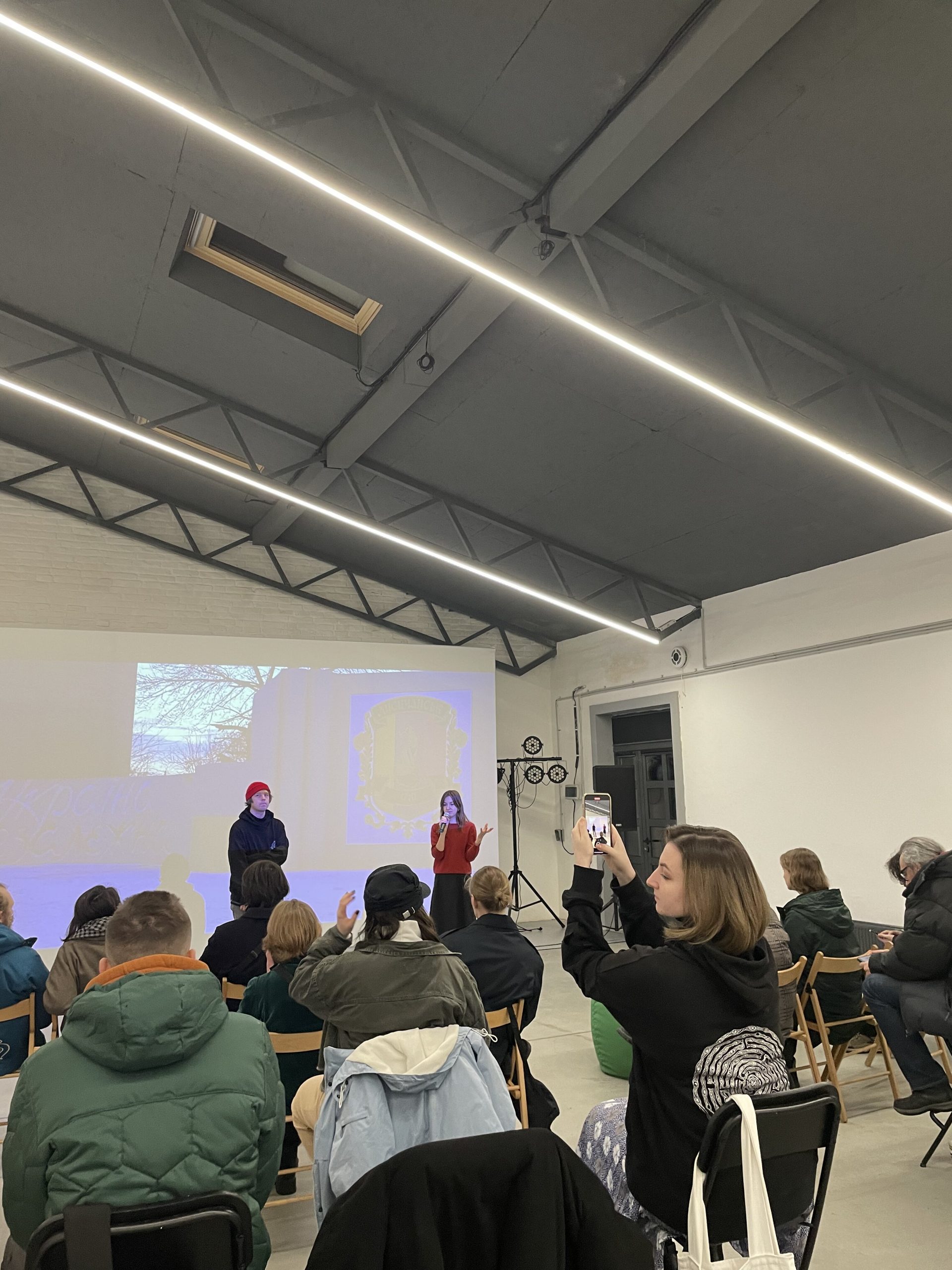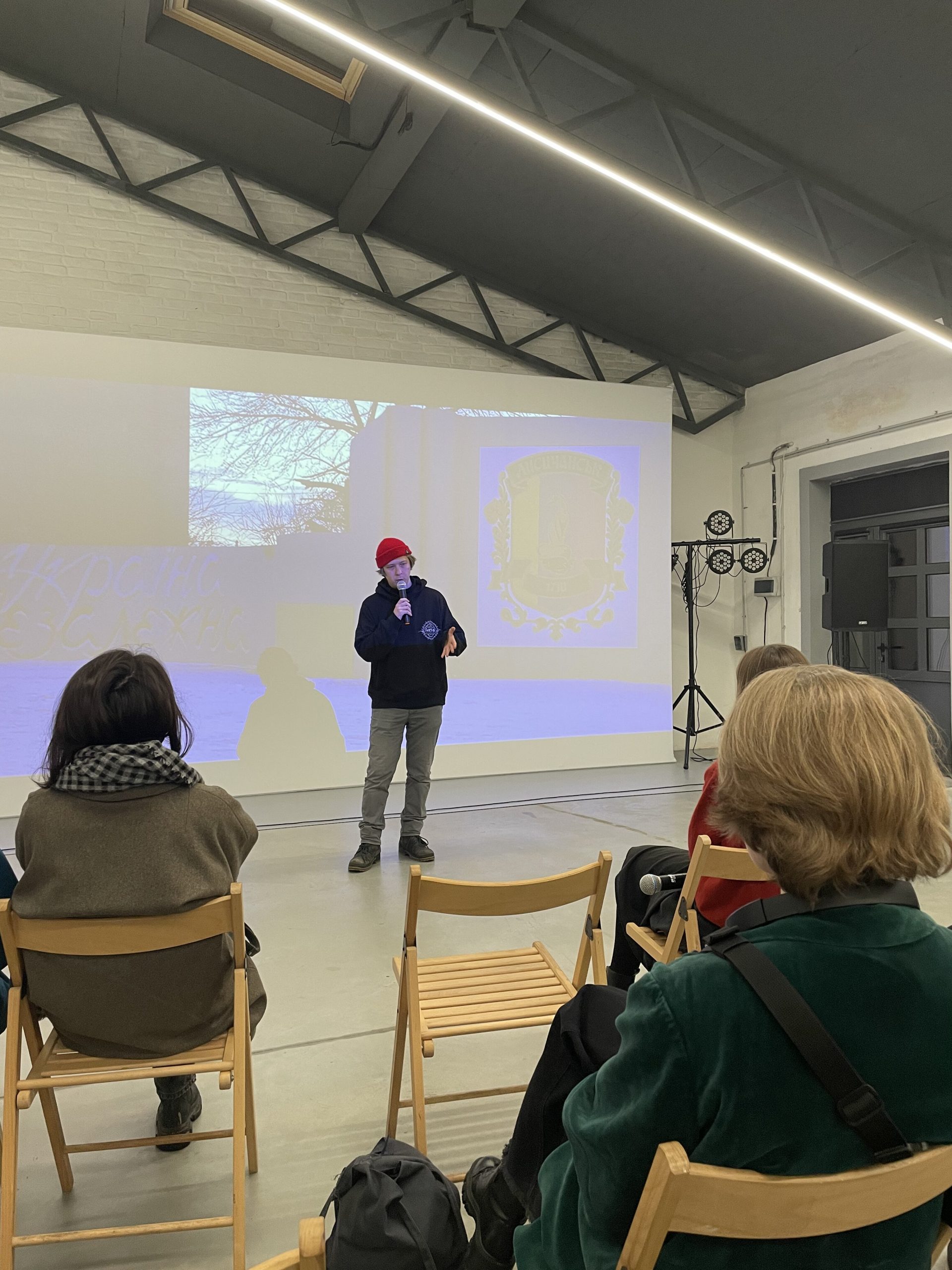Vitaliy Matukhno, an activist, artist, and curator from Lysychansk, will present a film about his hometown. After the viewing, we will discuss cinema, the Eastern part of Ukraine, and reflections on the artist’s personal experience.
The film “Beautiful Gusts of The Soul” is a visual image of the city of Lysychansk, Luhansk region, made from discovered archival materials from the “Accent” TV channel. Due to the strange narrative of the channel and the conditions in which these archival records were found, the film creates a surreal picture of a city that tries not to see its problems and lives in a distorted reality. However, it seems the city is preparing for another collapse.
The characters in the film often talk about the future, expressing their hopes or dreams, but they have not yet encountered a future that will meet complete destruction and a sense of abandonment.
The film contains two lines: shots from the past in the lens of the Aksent TV channel are at the fore while the second plan depicts the events that take place between 2014 and 2022. This is our present and the future that has already arrived in the city. We see complete devastation due to the war in Ukraine and the processes of the deindustrialization of Donbas, which began in the 90s, but their consequences became especially noticeable in the 2010s.
“The future has taken a back seat because, for Lysychansk, documented by the Aksent TV channel, it has not yet arrived, but we can already see how the city is preparing for it. Especially when I found the channel’s archive footage on the floor in a pile of dust, broken glass, and bricks, the devastation was the future even for archival tapes.” – comments the author.
***
The event takes place within the framework of the integration program “Navigation.” We are grateful for the support of the ZMIN Foundation, the Stabilization Fund for Culture and Education of the Federal Ministry of Foreign Affairs of Germany, and the Goethe-Institut.



